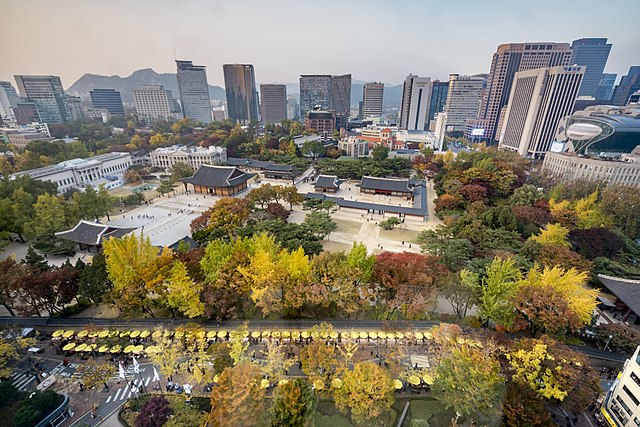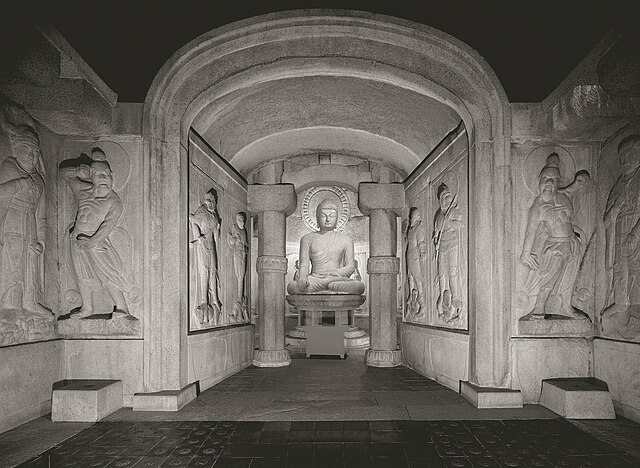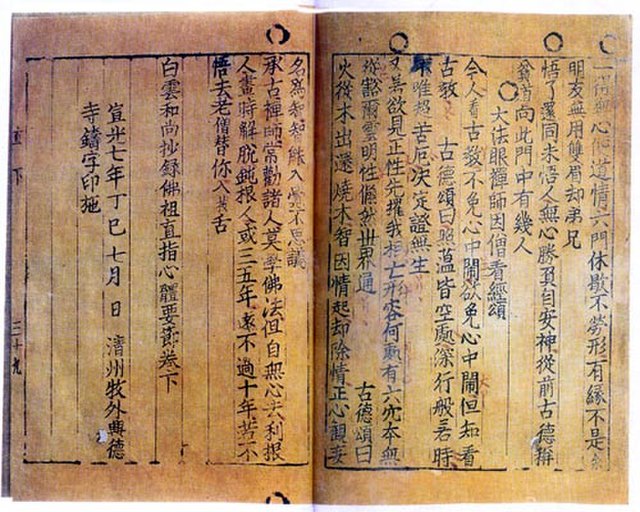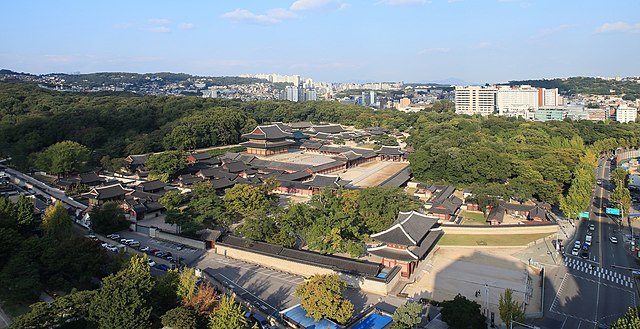Seoul, officially Seoul Special City, is the capital of the Republic of Korea (ROK), commonly known as South Korea, and the country's most extensive urban center. The broader Seoul Capital Area, encompassing Gyeonggi province and Incheon metropolitan city, emerged as the world's fourth largest metropolitan economy in 2014, trailing only Tokyo, New York City, and Los Angeles, hosting more than half of South Korea's population. Although Seoul's population peaked at slightly over 10 million, it has gradually decreased since 2014, standing at approximately 9.97 million residents as of 2020. Seoul is the seat of the South Korean government.
Image: Seoul (175734251) (cropped)
Image: 덕수궁의 가을
Image: Republic of Korea capitol
Image: Lotte World day view 2
South Korea, officially the Republic of Korea (ROK), is a country in East Asia. It constitutes the southern part of the Korean Peninsula and borders North Korea along the Korean Demilitarized Zone; though it also claims the land border with China and Russia. The country's western border is formed by the Yellow Sea, while its eastern border is defined by the Sea of Japan. South Korea claims to be the sole legitimate government of the entire peninsula and adjacent islands. It has a population of 51.96 million, of which roughly half live in the Seoul Capital Area, the ninth most populous metropolitan area in the world. Other major cities include Incheon, Busan, and Daegu.
Seokguram Grotto from the Silla era, a UNESCO World Heritage Site
The oldest surviving metal movable type book, the Jikji, was printed in 1377, and Goryeo created the world's first metal-based movable type in 1234.
The Tripitaka Koreana — the Buddhist canon (Tripiṭaka) carved onto roughly 80,000 woodblocks and stored (and still remaining) at Haeinsa, also a UNESCO World Heritage Site
Changdeok Palace, pictured in 2014, one of the Five Grand Palaces of Seoul built during the Joseon Dynasty and a UNESCO World Heritage Site








